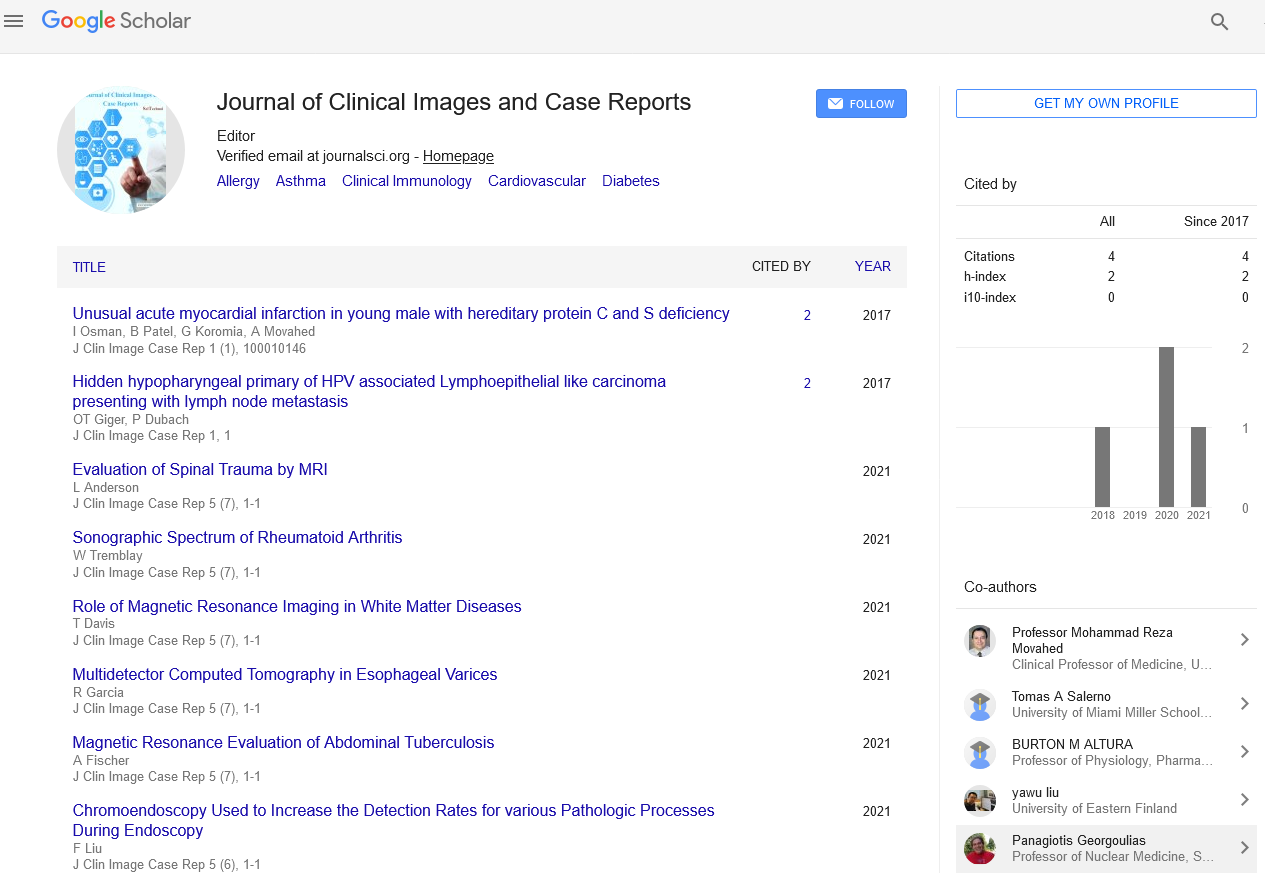Opinion Article, J Clin Image Case Rep Vol: 8 Issue: 6
The Impact of Diabetes on Renal Health and Function
Janet Olawuyi*
1Department of Health Sciences and Technology, Sungkyunkwan University, Seoul, South Korea
*Corresponding Author: Janet Olawuyi,
Department of Health Sciences and
Technology, Sungkyunkwan University, Seoul, South Korea
E-mail: olawuyijanet@gmail.com
Received date: 26 November, 2024, Manuscript No. CICR-24-156419;
Editor assigned date: 28 November, 2024, PreQC No. CICR-24-156419 (PQ);
Reviewed date: 12 December, 2024, QC No. CICR-24-156419;
Revised date: 19 December, 2024, Manuscript No. CICR-24-156419 (R);
Published date: 26 December, 2024, DOI: 10.4172/CICR.1000338.
Citation: Olawuyi J (2024) The Impact of Diabetes on Renal Health and Function. J Clin Image Case Rep 8:6.
Description
Diabetes is one of the leading causes of Chronic Kidney Disease (CKD) and it can significantly impact renal health over time. The prolonged high blood sugar levels that characterize diabetes can damage the kidneys, leading to diabetic nephropathy, a condition where the kidney's filtering units are impaired. The relationship between diabetes and renal function is complex, as hyperglycemia leads to the accumulation of Advanced Glycation End-products (AGEs) that cause damage to kidney tissues and blood vessels, impairing their ability to filter waste products effectively.
The kidneys have a vital role in regulating the body’s fluid balance, electrolytes and waste products. In the presence of diabetes, high blood sugar can damage the small blood vessels in the kidneys, causing them to become thickened and scarred. This damage disrupts the kidneys' ability to properly filter blood, leading to the accumulation of waste products and fluid in the body. As the kidney function declines, individuals may begin to experience symptoms such as swelling, fatigue and difficulty controlling blood pressure.
Over time, diabetic nephropathy can progress to End-Stage Renal Disease (ESRD), which may require dialysis or a kidney transplant for survival. The risk of developing ESRD is significantly higher in individuals with poorly controlled blood sugar levels and those with a long history of diabetes are at greater risk. However, diabetic nephropathy is preventable or at least manageable with early intervention and proper management of blood sugar levels.
The link between diabetes and kidney disease highlights the importance of regular monitoring of kidney function in individuals with diabetes. Blood and urine tests, such as serum creatinine levels, Glomerular Filtration Rate (GFR) and urine albumin levels, are essential for detecting early signs of kidney damage. These tests allow for timely intervention, such as adjusting medications or changing the treatment plan to slow the progression of kidney damage.
Additionally, managing blood sugar levels is difficult for preserving kidney function. Strict glycemic control through a combination of dietary modifications, physical activity and, when necessary, medication can significantly reduce the risk of diabetic nephropathy. The use of Angiotensin-Converting Enzyme (ACE) inhibitors or Angiotensin Receptor Blockers (ARBs) has also been shown to reduce the progression of kidney damage by lowering blood pressure and protecting the kidneys from further damage.
A low-sodium, low-protein diet is also recommended for individuals with diabetic kidney disease, as it can help manage blood pressure and reduce the workload on the kidneys. Moreover, avoiding excessive use of Non-Steroidal Anti-Inflammatory Drugs (NSAIDs) and other medications that can exacerbate kidney damage is important for protecting renal health.
Prevention of kidney disease in individuals with diabetes is not only about controlling blood sugar but also requires addressing other risk factors such as hypertension and high cholesterol. Regular physical activity, a balanced diet and smoking cessation can all contribute to better kidney health and improved overall well-being.
As diabetes continues to rise globally, awareness about its impact on kidney function is essential for reducing the burden of kidney disease. With the right preventive measures, individuals with diabetes can significantly lower the risk of kidney damage and improve their quality of life. Early intervention, lifestyle changes and effective management strategies can help protect renal health and prevent the severe complications associated with diabetic nephropathy.
 Spanish
Spanish  Chinese
Chinese  Russian
Russian  German
German  French
French  Japanese
Japanese  Portuguese
Portuguese  Hindi
Hindi 